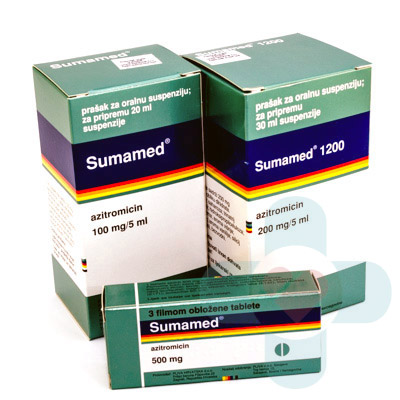
Also known as: Zithromax
This medicine contains the active ingredient azithromycin, which belongs to a group of antibiotics called macrolides. Azithromycin stops the bacteria and other microorganisms that cause infections such as chest, throat or nasal infections, ear infections, skin and soft tissue infections, some genital infections caused by Chlamydia trachomatis and Neisseria, Gonorrhea. [...]
This medicine contains the active ingredient azithromycin, which belongs to a group of antibiotics called macrolides. Azithromycin stops the bacteria and other microorganisms that cause infections such as chest, throat or nasal infections, ear infections, skin and soft tissue infections, some genital infections caused by Chlamydia trachomatis and Neisseria, Gonorrhea.
Azithromycin is not suitable for everyone. Do not use it
In particular, you must tell the doctor if you:
Azithromycin interacts with other medicine. It is most important that you tell the doctor all the medications and herbal supplements that you are currently taking. See the package leaflet for a complete list of possible contraindications and warnings.
This medicine is available in form of a film-coated tablet, capsule and powder for oral suspension.
All of these forms have different use. You should use azithromycin exactly as instructed by your doctor or pharmacist.
Do not use more of it, do not use it more often, or do not use it for a longer time than your doctor instructed.
Read the information leaflet provided with your medication for additional information. Talk to your doctor if you have any additional questions.
Like all medicines azithromycin can cause side effects, including:
Very common:
Common:
Consult a doctor if the side effects are severe. See the package leaflet for a complete list of side effects.